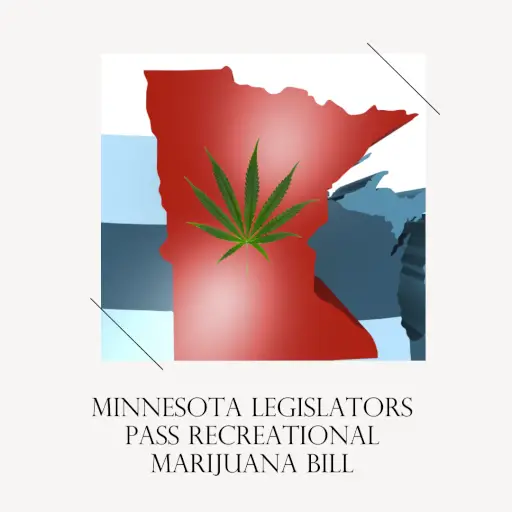Iowa City (319) 321-6401 |

Brunei Kratom: A Comprehensive Guide to Effects and Dosage
Imagine navigating the dense rainforests of Brunei, uncovering the hidden

On Friday, April 28, 2023, the Minnesota Senate voted to approve a bill legalizing recreational marijuana for adult use in the state. This historic decision follows the Minnesota House of Representatives passing its bill version earlier in the week. This marks a significant step toward recreational marijuana legalization in Minnesota.
The bill’s passing has been one of the most closely watched bills of the session. It has elicited mixed reactions from various stakeholders in the state. It will significantly impact Minnesotans, particularly those in communities of color. These communities have been disproportionately affected by the war on drugs. With this latest development, Minnesota is set to join a growing list of states legalizing recreational marijuana.
The House and Senate bills will be sent to a conference committee to resolve differences. The bill will head to Governor Tim Walz’s desk for signature if it passes the conference committee. Governor Walz has expressed support for recreational marijuana legalization. After the governor signs the bill, Minnesota will become the 23rd state to legalize recreational cannabis.
Once the bill has been presented to the governor, he has three days to sign the bill. It becomes law if the governor does not sign or veto the bill within three days. However, if the legislature adjourns before the three-day period is up, the governor has fourteen days to sign or veto the bill. Otherwise, it will not become law. If the governor vetoes a bill, the legislature can override the veto with a two-thirds vote in both the House and the Senate.
Minnesota has been moving towards legalizing recreational marijuana for several years. In 2014, the state legalized medical marijuana, allowing those with qualifying medical conditions to use cannabis for treatment. Since then, efforts to legalize recreational use have gained momentum. Advocates argue it is time to end cannabis prohibition and establish a regulated adult-use system.
The recreational marijuana bill passed by the Minnesota Legislature allows adults 21 years and older to purchase and possess cannabis for personal use. Under the bill, individuals can buy up to two ounces of cannabis flower, eight grams of concentrate, and 800 milligrams of edibles at once from licensed dispensaries. Additionally, adults can grow up to eight cannabis plants per household for personal use.
There are differences between the House and Senate versions of the bill. One of the main differences is related to cannabis taxation. The bill also addresses racial disparities in Minnesota’s criminal justice system by expunging records of low-level marijuana offenses.
Arguments Against Legalization:
The passing of the recreational marijuana bill in Minnesota has significant implications for the state and the nation. Here are some possible points to explore:
Recreational marijuana legalization in Minnesota has significant implications for the state’s economy, social justice, public health, law enforcement, and federal laws. While the bill has received support from many legislators and advocacy groups, it has also faced opposition from those concerned about legalization’s potential risks and challenges. Other states will likely closely watch this legislation as they consider their marijuana policies.
Other News: Elf Bar Loses Trademark Patent Dispute

Imagine navigating the dense rainforests of Brunei, uncovering the hidden

Have you ever wondered why Trainwreck Kratom has sparked such

To effectively combat headaches, specific Kratom strains stand out for
Subscribe for exclusive deals and updates!
